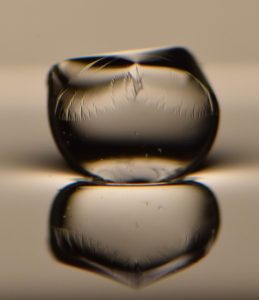 Smart materials that dynamically respond to their environment, such as polymers that can actively close a wound or folded origami structures that can be deployed with a single actuator, are widely believed to be necessary for the next wave of technological innovation. Applications range from clean energy to robotics to health and medicine. Yet, it can take 20 years from the discovery or development of a smart material to move it to the market, as there are very few rational design principles for generating new smart materials. Accelerating the pace of development and decreasing the cost will be essential to realizing the promise of smart materials.
Smart materials that dynamically respond to their environment, such as polymers that can actively close a wound or folded origami structures that can be deployed with a single actuator, are widely believed to be necessary for the next wave of technological innovation. Applications range from clean energy to robotics to health and medicine. Yet, it can take 20 years from the discovery or development of a smart material to move it to the market, as there are very few rational design principles for generating new smart materials. Accelerating the pace of development and decreasing the cost will be essential to realizing the promise of smart materials.
BioInspired at Syracuse University brings together internationally-recognized leaders in soft matter and functional biomaterials research. Areas of expertise include:
- Cell/Tissue Mechanics and Patterning
- Bacteria-Material Interactions
- 4D Imaging
- Geometry and Mechanics
- Hydrogels
- Functional and Responsive Materials
Our goal is to develop complementary expertise in the following areas:
- Mathematical Materials Science: Discovering the mathematical underpinnings that enable rational design of new smart materials.
- Theoretical Soft Matter – Active Solids: studying non-biological materials that are flexible, foldable, or actuated at the smallest scales to create new types of materials and better understand pattern formation in biological tissues.
- Functional Materials: Developing functional molecules using rational design and high throughput synthesis to address antibiotic resistance.
- Advanced imaging: Creating new tools to visualize dynamic behavior in both soft materials and complex biological systems, with potential to study disease progression.
